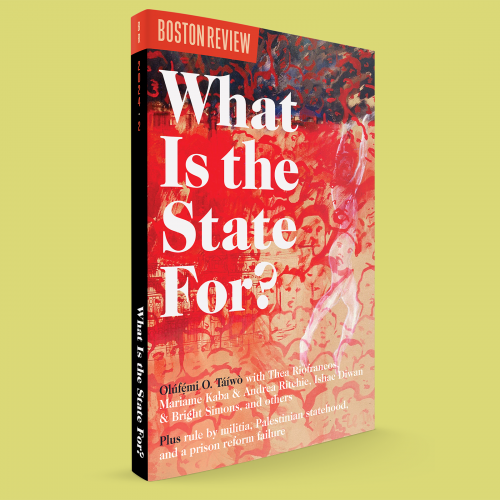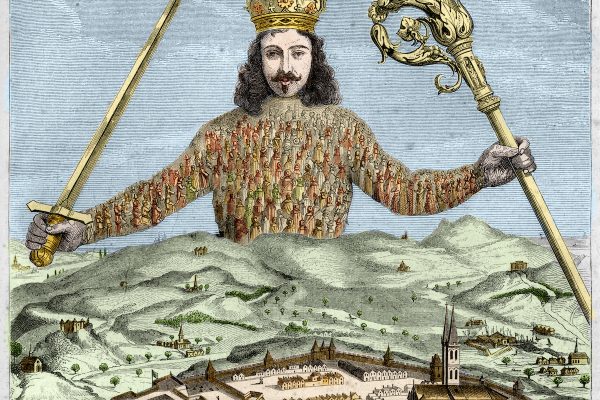The project that Táíwò envisions—dethroning fossil capital—raises hard questions about the current state of the state. It may be that in the United States, “state politics is the likeliest path forward for successful contention with fossil capital.” But what about state structures that look far too weak for purposeful collective action? We might think of political sociologist Fernando Escalante’s useful distinction between “bureaucratic republics” and “mafioso republics,” as well as anthropologist Clifford Geertz’s assessment of the patchy development of sovereignty in what he called “complicated places,” but I’ll focus on the transformation of the state in one national society: Mexico.
Set in motion by the corrosion of an old system of public order and neoliberal structural reforms, a new state form emerged in Mexico in the 1980s. It has consolidated since then, outlasting neoliberalism’s hegemony. The core quality of the new state is an excess of sovereignty and a dearth of administrative capabilities; state development has been marked by increased centralization of power in the hands of the president of the republic and a diminished ability to keep transaction costs steady and predictable. Indeed, because the state’s mechanism for regulating and protecting economic transactions has been transformed, the modus operandi of the new state is especially evident in the ways that policing is organized, and it is worth starting there.
Over the course of the twentieth century, the Mexican state developed a system of governance that was based on extracting the resources required for public safety directly from those who broke laws, or from those who wished to guarantee their application. In other words, public safety was financed through bribery and extortion, much more than through taxes. Local police forces regulated informal markets and protected property rights selectively. The state compensated for its disproportionately small tax base by combining oil revenue with direct levies for various public services, including policing. (Even today, Mexico’s tax-to-GDP ratio is the lowest among OECD countries, indeed less than half the OECD average.)
Policing was thus paid for by the public directly, either by way of bribes offered in exchange for tolerance or of rents paid by local businesses in return for protection. The state also used the police force as a lever to swap toleration of informal economic activities for political support. At the same time, limits to police voracity and extortion were set politically by Mexico’s one-party authoritarian state, enhancing predictability and thereby creating a feeling of order and relative safety. This was the system that prevailed roughly between the 1930s and the mid-1980s.
Then came global oil and financial crises, and the Mexican state started to break down in the wake of neoliberal reform, free trade, and a surge in drug-trafficking revenue following Mexico’s entry into the cocaine business in the mid-1980s. But these systemic pressures pulled in opposite directions.
On the one hand, trade liberalization—which came into full bloom with the passage of NAFTA in 1994—required the development of the rule of law, secure property rights, and predictability of transaction costs. As a result, trade tended to promote the development of a professional police force, paid for through taxes rather than by extortion. And indeed, starting in the 1990s, the Mexican state began investing heavily in the professionalization of its police forces.
On the other hand, North American integration and free trade also fostered the development of organized crime, initially built around the drug trade—which went from being family businesses to sophisticated corporations with hundreds and even thousands of employees. Mexico’s comparatively low level of police regulation led organized crime to gravitate southward, away from the United States, where its operational capabilities could be more easily secured. The consolidation of organized crime was further facilitated by Mexico’s democratic transition; the end of the Institutional Revolutionary Party’s one-party rule in the early 1990s led political candidates and parties to compete for illegal drug money, which had the special advantage of flowing in cash. The political clout of organized crime thus increased with democratic competition.
The dynamic tension between these two forces—the push for the rule of law, and the growing nexus between organized crime and politics—gave rise to a new kind of state.
One of the effects of this enduring dynamic is that agents of the Mexican state today frequently find themselves in a position of self-disavowal and self-misrecognition. Indeed, the state faces considerable difficulties coordinating its agencies—a characteristic on display in the chronic mistrust between the Mexican military and its various police forces, which led Mexico’s president, Andrés Obrador, to dissolve the old Federal Police and fold it into a newly created National Guard operating under direct military control.
But policing is always a local business, so shootouts between state and municipal police forces occur regularly, and investigative policing, which was never efficient in Mexico, has broken down completely. Homicides and forced disappearances go almost entirely uninvestigated. Mexico today is a highly militarized state with almost no capacity to investigate or deter serious crimes.
Moreover, the state’s self-estrangement—its Kafkaesque horror at having metamorphosed into an alien creature—spurs further concentration of power. Obrador regularly portrays himself as the only reliable agent in what is otherwise a flailing and uncoordinated set of dubiously public institutions. The president and the army are thus elevated above the rest of the state, as if they were guarantors of the interests of the people, but the renunciation of supporting local policing, and the mistrust of the judicial apparatus as a whole actually serves further to ensconce the power of organized crime, which has so diversified its activities that it now plays a central role in the everyday regulation of the economy.
At this stage, then, the Mexican left faces a steep uphill battle to advance any progressive program, including divesting from fossil fuels. At a minimum, doing so will require strengthening the state’s administrative capabilities and wrenching control of public goods, including security, from the clutches of organized crime, which may be the biggest challenge of all.
Independent and nonprofit, Boston Review relies on reader funding. To support work like this, please donate here.









